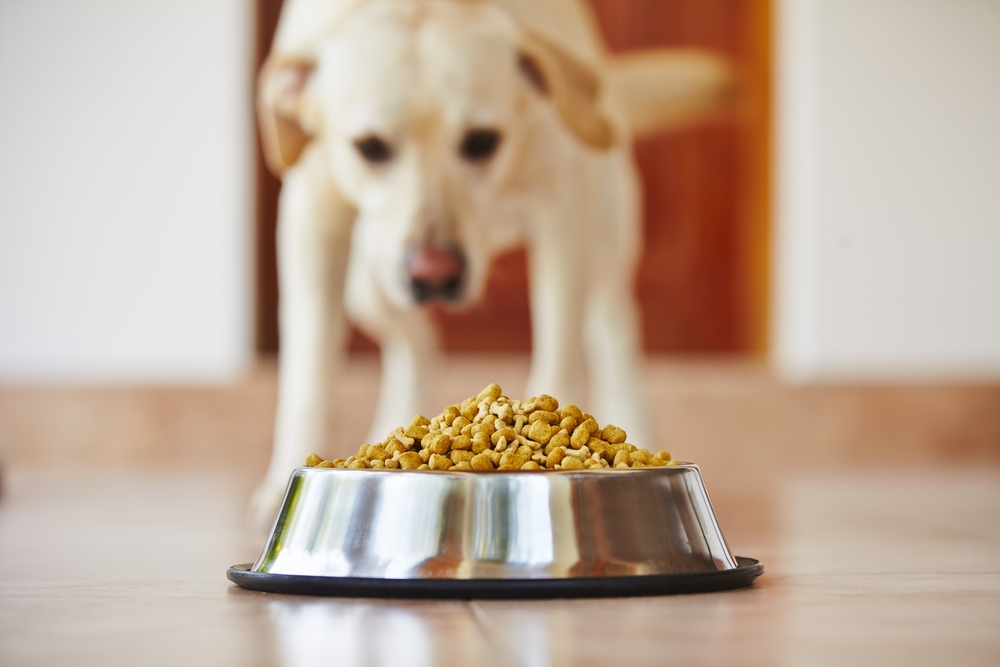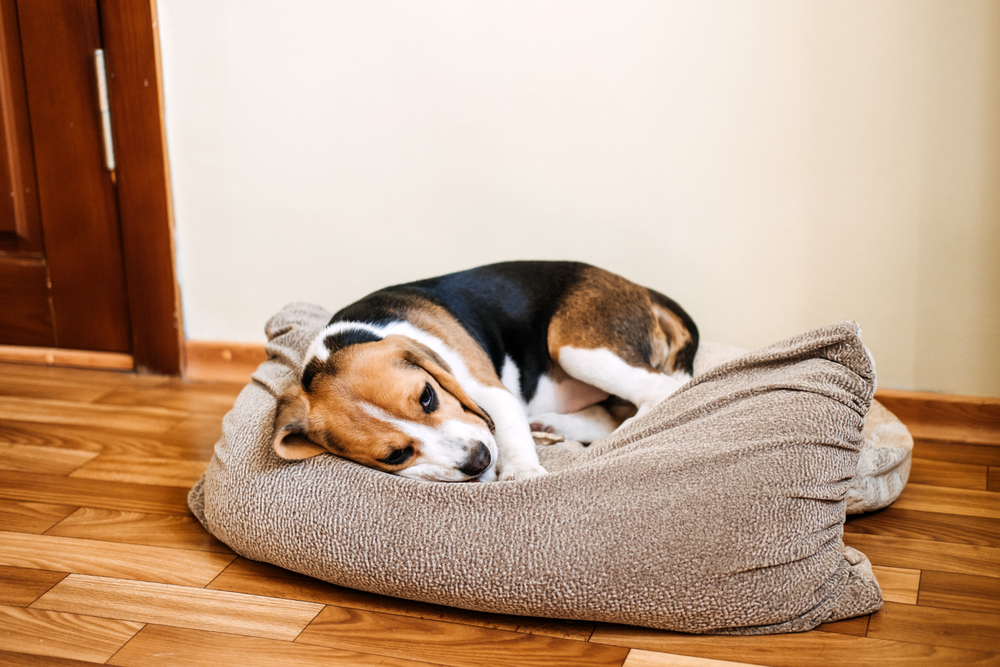Loose Ends: A Vet’s Guide to What’s Behind Your Dog’s Diarrhea
Diarrhea in dogs is one of the most common (and smelly) reasons pet owners call the vet. While many cases are mild and resolve quickly, others can signal serious illness. Understanding what might be behind your dog’s symptoms- and when it’s time to seek professional care- can make a big difference in their recovery.
Why Dogs Get Diarrhea
Diarrhea happens when the normal process of digestion is disrupted, causing loose or watery stools. The cause can range from something as simple as a change in diet to potentially life-threatening disease.
The length, frequency, and severity of the episode- as well as any other symptoms- help determine how urgent the problem is. If your dog is showing other signs of illness, it’s always safest to book an exam so we can assess them quickly.
Common Causes of Diarrhea in Dogs
1. Dietary Indiscretion
Dogs are curious eaters. From raiding the rubbish bin to sampling something from the garden, eating inappropriate foods often results in short-term digestive upset.
Greasy foods, spoiled leftovers, or large amounts of rich treats can quickly overwhelm a dog’s digestive system, leading to diarrhea.
2. Sudden Diet Changes
Switching your dog’s food too quickly is a common trigger for loose stools. Gradual transitions- mixing the old and new food over 7–10 days- help the gut adjust. For guidance on safely introducing a new diet, review this dog food transition guide.
3. Food Intolerances and Allergies
Some dogs react poorly to certain proteins, grains, or additives. These sensitivities can cause chronic diarrhea, sometimes with vomiting, gas, or itchy skin. Identifying the trigger often involves an elimination diet under veterinary supervision.
4. Infections
Bacterial, viral, or parasitic infections are frequent culprits. Canine parvovirus is a severe, highly contagious virus that can cause bloody diarrhea, vomiting, and dehydration- especially dangerous in unvaccinated puppies.
Other infectious agents include Salmonella, Giardia, and roundworms. Intestinal parasites can cause both acute and chronic diarrhea.
5. Toxins and Poisons
Household chemicals, certain plants, human medications, and even some foods can be toxic to dogs. Ingestion can cause diarrhea along with other symptoms like vomiting, drooling, tremors, or lethargy. If you suspect poisoning, contact ASPCA Poison Control immediately.
6. Stress or Anxiety
Changes in routine, travel, or boarding can upset a dog’s digestive system. Stress-induced diarrhea often resolves once the dog feels secure again, but ongoing anxiety may need behavioral support.
7. Inflammatory or Immune-Mediated Disease
Chronic conditions such as inflammatory bowel disease (IBD) cause recurrent digestive upset. These cases often require dietary changes, medication, and ongoing monitoring.
8. Pancreatitis
When the pancreas becomes inflamed, it can’t properly aid digestion. This can result in diarrhea, vomiting, and abdominal pain. Pancreatitis in pets can be triggered by fatty meals, obesity, or certain medications, and can be life-threatening without prompt care.
9. Systemic Illness
Diseases affecting organs like the liver, kidneys, or thyroid can also cause diarrhea. Blood tests and other diagnostics are often needed to identify these issues.
10. Environmental Hazards
Ingesting foreign objects, spoiled food, or contaminated water can lead to gastrointestinal upset. Prevention includes pet-proofing your home and supervising your dog outdoors.
When to Seek Veterinary Care
Some mild cases of diarrhea resolve within 24 hours. However, it’s important to know when veterinary attention is needed. You should call your vet if your dog shows:
- Diarrhea lasting more than 24–36 hours
- Blood in the stool or black, tarry stools
- Vomiting, especially if severe or persistent
- Loss of appetite or refusal to drink
- Lethargy or weakness
- Abdominal pain or bloating
- Signs of dehydration (dry gums, sunken eyes, reduced urination)
If your dog is a puppy, senior, very small, or has underlying health conditions, don’t wait- schedule a visit so we can assess and treat them promptly.
How Vets Diagnose the Cause
Your vet will begin with a thorough history, asking about diet, environment, recent travel, and exposure to other animals. Physical examination and tests help pinpoint the cause. These may include:
- Fecal testing for parasites and bacteria
- Bloodwork to assess organ function and hydration status
- Imaging (X-rays or ultrasound) to look for obstructions or abnormalities
- Specific disease testing, such as for canine parvovirus
Resources like the Cornell canine diarrhea guide explain why stool characteristics, frequency, and associated symptoms matter in diagnosis.
Treatment Options
Treatment depends on the underlying cause and severity:
- Temporary fasting followed by a bland diet
- Probiotics to restore healthy gut bacteria
- Anti-parasitic medication if worms are detected
- Antibiotics for certain bacterial infections
- IV fluids for dehydration
- Pain relief and anti-nausea medication
- Surgery for obstructions or severe disease
In cases of food intolerance or chronic disease, your vet may recommend a special prescription diet. Healthy nutrition choices and consistent feeding routines support long-term gut health.

Preventing Diarrhea in Dogs
While not all cases of diarrhea can be avoided, taking proactive steps can greatly reduce the risk. Keeping your dog’s vaccinations up to date and following regular parasite prevention protocols help protect against infectious causes. When changing diets, transition foods gradually to allow the digestive system to adjust, and avoid giving table scraps or fatty treats that can upset the stomach. Store rubbish securely and monitor outdoor time to prevent scavenging. Finally, practice good hygiene with pet food, following pet food safety guidelines can minimize the chance of contamination.
Special Considerations for Puppies and Seniors
Young puppies and older dogs are more vulnerable to rapid dehydration from diarrhea. Puppies are at high risk for canine parvovirus, while seniors may have underlying conditions that worsen symptoms. These pets should be seen promptly for any digestive upset.
If you’ve just welcomed a new dog or puppy into your home, our new puppy care guide can help you set them up for a lifetime of good digestive and overall health, and prevent dangerous diseases like parvo.
Concerned About Your Dog’s Diarrhea? We Can Help.
If your dog is experiencing diarrhea- especially with other symptoms- don’t wait. Early treatment can make a big difference in recovery and comfort.
Call Vale Veterinary Group at 01884 35558 or request an appointment online today. Our team is here to diagnose the cause, provide effective treatment, and help get your dog back to feeling their best.







Leave A Comment